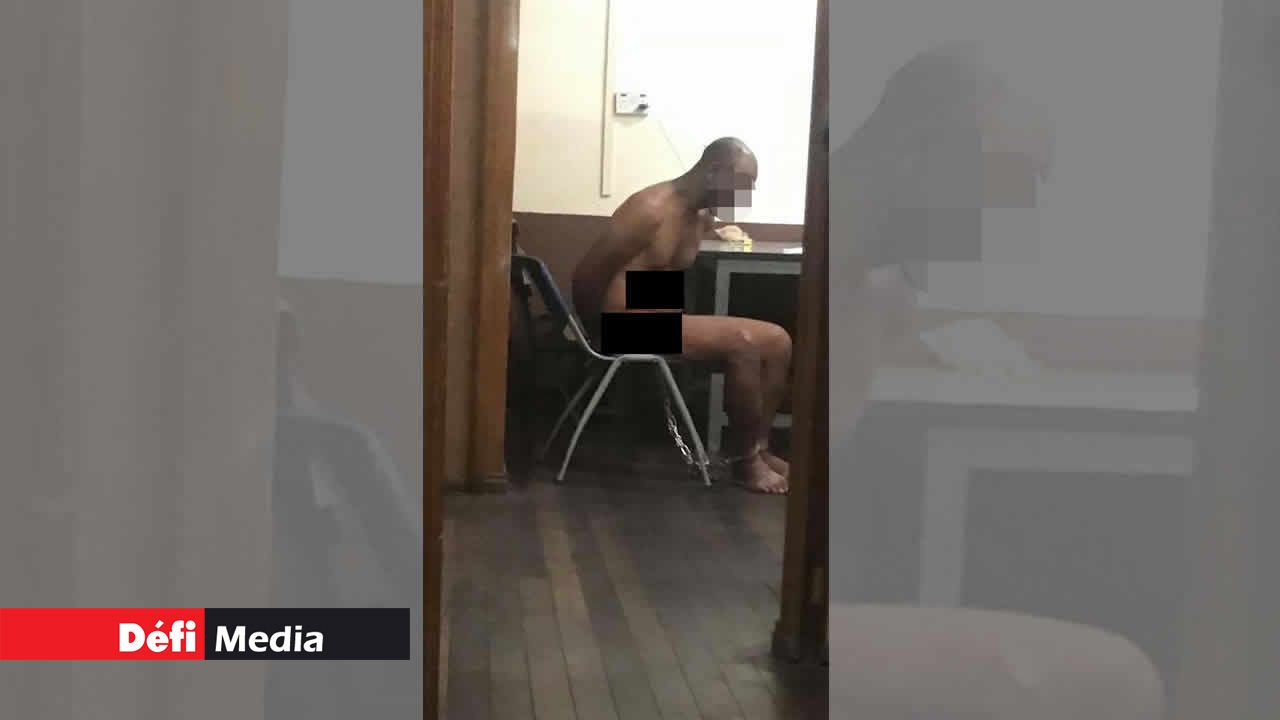
The treatment provided by police officers to presumed suspects has always been very debatable. While some voice out that the treatments are inhuman, those in the field affirm that they are only doing their job and that procedures such as the ‘strip search’ are normal. Where should police officers draw the line when it comes to treatment regarding suspects? News on Sunday launches the debate with Barrister Neelkanth Dulloo and Inspector Jaylall Boojhawon.
Publicité
Barrister Neelkanth Dulloo : “Those who believe that it is normal to humiliate and torture people should not work within the Mauritius Police Force”. The Barrister utters that not all police officers are truly police officers.
“Some are very keen on their job. They are proud members of the Police Service who really have the skills of investigation and who possess the excellent ability of combating crimes. They are aware of the ills of the society and manage field operations with no difficulty. Unfortunately, some persons joined the Mauritius Police Service because they were unable to secure other jobs. This is the problem and this is where the problems arises, i.e. unskilled Police officers,” says Neelkanth Dulloo.
He explains that there are three main Police departments whereby Barristers have to work on a daily basis. “Firstly, they are those who are posted at different Police Stations all over the Republic. Secondly, they are those who are from the Crime Investigation Department (CID), and thirdly, they are those who are from the Anti-Drug Smuggling Unit (ADSU).” However, he claims that since he began his practice, he has never encountered any problems with officers of the ADSU.
“All over the Republic, including those posted at the ADSU Headquarters, officers do their job with real professionalism. You will never come across a case whereby you will see that ADSU personnel have forced someone to confess to a crime. They always act diligently and work on Police evidence.” Nevertheless, he states, “the problems are always from some officers posted at the different Police Stations and always from some posted at specific quarters of the CID, not all. Arrests at some Police Stations and some specific quarters of the CID are often arbitrary, which renders subsequent interrogations unlawful.”
Do the police officers often cross the line? The barrister trusts that the problem resides in mentality. “Those who act with total disrespect and completely disregard the laws of the Republic surely suffers from great mental deficiency or have somehow had a very difficult childhood. Unfortunately, the Disciplined Forces Services Commission only recruit Police officers on the basis of their physical strength and never on their mental abilities or intelligence… Forcing and tricking someone to confess will avoid further enquiries and will bring an end to any ongoing investigations since some believe that confession is the best evidence.”
He is of the opinion that there is a need to bring a new law in relation to confession based evidence so as to pass the test of admissibility. “As it is now, it is wrong. Completely wrong. Confession saves considerable amount of time and energy. Some Police officers pray God for accused to confess. When God doesn’t help, they act as animals and torture… Unfortunately, at the eve of our 50th celebration of a liberated nation, we still have confession statements which were not voluntary in as much as they were obtained against Constitutional Right to Counsel, against Constitutional Right to Silence; through oppression; through threats and assault; and through tricks and deception,” he states.
Neelkanth Dulloo cites what Honourable Justice A. Caunhye and Honourable Justice R. Teeluck stated in DPP v Jagdawoo v & Ors 2016 SCJ 100. “The treatment of detainees who are placed in a vulnerable position is a matter of even greater concern when it comes to protection of these human rights. The detainee is virtually cut off from the outside world and is placed in a situation of weakness and vulnerability being left to a considerable extent to the mercy of Police or prison officials. The State has positive obligations to afford security and protection of the law and human rights to all categories of its citizens. The State has a duty to secure and not to violate the right to life and the right to protection from torture and inhuman treatment. The more so, in respect of its more vulnerable citizens. We say so because the infliction of torture or inhuman treatment and the killing of a person in such circumstances cannot be treated with levity. Constitutional rights and criminal law provisions would remain purely theoretical and illusory, unless there is in place effective law enforcement machinery endowed with the appropriate legal and investigative mechanism for the prevention, investigation and punishment of any such violation of human rights.”
He also believes that torture and humiliation are abnormal and inhuman and have no place to be. “Those who believe that it is normal to humiliate and torture people should not work within the Mauritius Police Force. Not even in a Zoo.” Commenting on the case of David Gaiqui, the barrister states that so far, no one has come forward from the Curepipe CID to say why the person was chained naked. “Are they now sacred to come forward to say why he was chained naked? So far, only two persons have talked about strip search and that it is proper and acceptable… Two persons who I believe should retire immediately since they both have total disregard to the laws of humanity,” he utters.
Neelkanth Dulloo explains that Sanjeev Teeluckdharry, Erikson Mooneeapillay, Jay Prakash Rutnah, Neeven Mooneesamy and himself were in the corridor of Curepipe Police Station sometime after midnight and in the early hours of Monday morning after the victim (whom they are all assisting on a pro-bono basis) had given a full account of his ill-treatment. “We all agreed that what had happened was unbelievable and that if we do not take a stand to stop any further of this, it will continue. So we have decided to take the first step,” reveals the barrister.
In fact, the group of lawyers mentioned above has set up the Human Rights Association in order to voice out their concerns: Stop degrading and ill-treating human beings in Police custody and Uphold Human Rights standards… Human Rights Association will make sure that fundamental constitutional rights guaranteed under section 4 and section 7 of our Constitution are respected,” he shares.
The Bar Council asks for reassurance
In a press release issued by the Bar Council on Tuesday, the Bar Council has asked the police Commissioner to reassure the public that he will not tolerate rogue police officers. The Bar Council is calling for quick and meaningful sanctions against officers who engage in violence against suspects or intimidate lawyers in order to deprive a suspect of legal representation. The Bar Council also plans to take steps with the relevant authorities to ensure that the police investigation is conducted in a transparent, fair and independent manner.

Notre service WhatsApp. Vous êtes témoins d`un événement d`actualité ou d`une scène insolite? Envoyez-nous vos photos ou vidéos sur le 5 259 82 00 !













![[Info Soirée] : « nou vo plis ki Rs 250 »](https://defimedia.info/sites/default/files/styles/medium/public/thumbnail_230424.jpg?itok=V_WESRGO)




![[Info Soirée] : « nou vo plis ki Rs 250 »](https://defimedia.info/sites/default/files/styles/square_thumbnail/public/thumbnail_230424.jpg?itok=1i1nrOHC)


